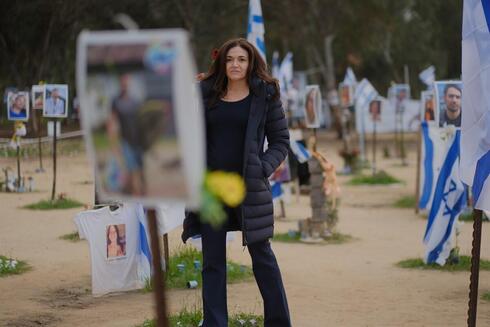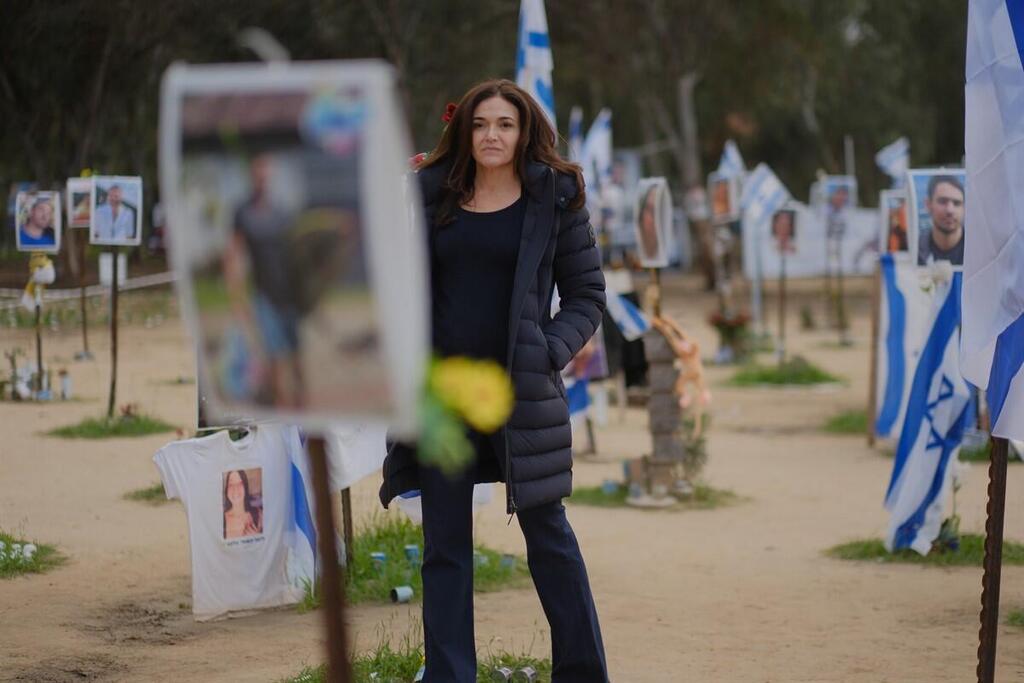
Sheryl Sandberg's harrowing documentary exposes Hamas sex crimes
"Screams Before Silence," the documentary film initiated by Sheryl Sandberg about the sex crimes of Hamas on October 7, is available from today to watch on YouTube and a dedicated website, free of charge
"Screams Before Silence," the documentary film initiated by Sheryl Sandberg about the sex crimes of Hamas on October 7, is available from today to watch on YouTube and a dedicated website, free of charge, all over the world.
Last night (Thursday) the film was screened in New York in front of senior government officials and members of the media. The goal of Sandberg, a senior manager in the tech field, who is Jewish, and who was Meta's chief operating officer until 2022 and arrived in Israel after the October 7 massacre, is to shed light on the horrific events, which, despite their massive documentation, including by the terrorists themselves, some deny their existence.
In the film, Sandberg, who has already spoken about the issue at the UN headquarters at an event with survivors of the massacre and became an ambassador for the issue, meets with survivors of the party, women who were kidnapped and released, members of the rescue forces, doctors and sexual crime experts, who explain how Hamas used sexual violence as a weapon in the war.
The film was shot in Israel in February 2024, even before the publication of testimonies of abductees and survivors, including Amit Soussana, whose description of what she went through in captivity was published in the "New York Times" and received a worldwide response. In this film she speaks to the camera for the first time. Just as it was difficult to read this testimony, and as it is amazing and shocking every time to see the security camera footage of her brave struggle against about ten terrorists who kidnapped her, it is very difficult to hear her tell what she went through when she was abducted and kidnapped in Gaza. "I wasn't afraid that they would kill me," she says of the moment of the kidnapping. "I was more afraid that they would rape me and put my body on display in the streets of Gaza." In the film there are photographs taken by Gazans of a murdered man and a murdered woman being paraded in the street, which is exactly what Soussana feared would happen to her.
The question is of course who the film is aimed at. Many in Israel were exposed to the testimonies and atrocities from day one. There are those who feel obligated to see every detail filmed about that disaster. They will watch it too. Those who avoid watching out of fear for their wellbeing, will not watch this film either, even though it was made with sensitivity. Will the pro-Palestinian demonstrators at universities in the U.S., some of whom deny the events, or claim that the victims are directly or indirectly responsible for them, watch it? Will the feminist Naomi Klein watch it, who in an article in the "Guardian" wrote, "This Passover, we don’t need or want the false idol of Zionism. We want freedom from the project that commits genocide in our name," and not a word about the women who were assaulted?
At the end of the film, Sandberg says in tears, "This is the most important work of my life. I feel that we are sliding back to a place where we will accept what is not acceptable, and I will not agree to that." It must not be agreed to. We must not agree to this denial, to women's organizations turning their backs, and we must not agree that those who can save the abductees from this terrible fate do not do everything they can to return them from captivity in Gaza.














